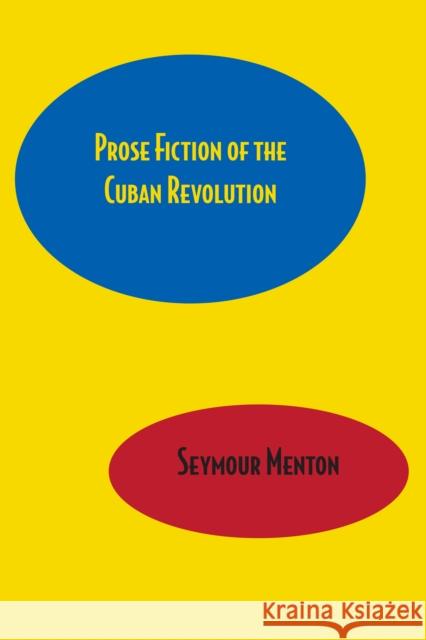Prose Fiction of the Cuban Revolution » książka
Prose Fiction of the Cuban Revolution
ISBN-13: 9780292763821 / Angielski / Miękka / 1975 / 364 str.
Recipient of the Hubert Herring Memorial Award from the Pacific Coast Council on Latin American Studies for the best unpublished manuscript of 1973, Prose Fiction of the Cuban Revolution is an in-depth study of works by Cubans, Cuban exiles, and other Latin American writers. Combining historical and critical approaches, Seymour Menton classifies and analyzes over two hundred novels and volumes of short stories, revealing the extent to which Cuban literature reflects the reality of the Revolution. Menton establishes four periods--1959-1960, 1961-1965,1966-1970, and 1971- 1973--that reflect the changing policies of the revolutionary government toward the arts. Using these periods as a chronological guideline, he defines four distinct literary generations, records the facts about their works, establishes coordinates, and formulates a system of literary and historical classification. He then makes an aesthetic analysis of the best of Cuban fiction, emphasizing the novels of major writers, including Alejo Carpentier's El siglo de las luces, and Jose Lezama Lima's Paradiso. He also discusses the works of a large number of lesser-known writers, which must be considered in arriving at an accurate historical tableau. Menton's exploration of the short story combines a thematic and stylistic analysis of nineteen anthologies with a close study of six authors: Guillermo Cabrera Infante, Calvert Casey, Humberto Arenal, Antonio Benitez, Jesus Diaz Rodriguez, and Norberto Fuentes. Several chapters are devoted to the increasing number of novels and short stories written by Cuban exiles as well as to the eighteen novels and one short story written about the Revolution by non-Cubans, such as Julio Cortazar, Carlos Martinez Moreno, Luisa Josefina Hernandez, and Pedro Juan Soto. In studying literary works to reveal the intrinsic consciousness of a historical period, Menton presents not only his own views but also those of Cuban literary critics. In addition, he clarifies the various changes in the official attitude toward literature and the arts in Cuba, using the revolutionary processes of several other countries as comparative examples.











